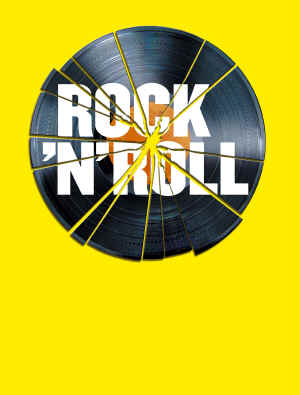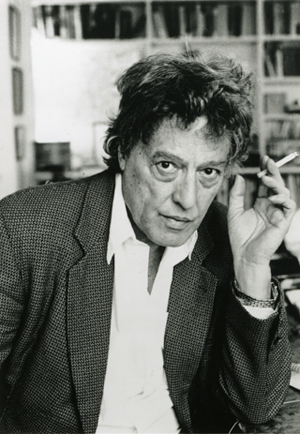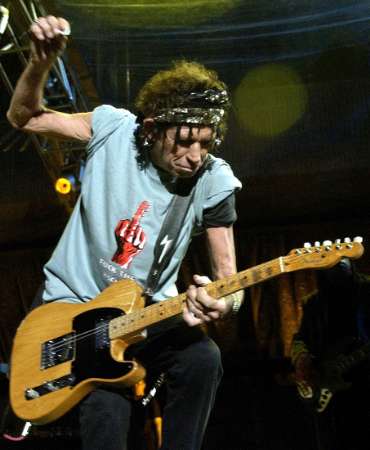
Tom Stoppard’s Rock ‘n’ Roll
Rock ‘n’ roll music isn’t important anymore. I mean—it’s not really important. It’s nearly irrelevant. Download a song, a bunch of ones and zeroes for a buck. (Do people know the names of the tunes or just the playlist number? ‘Play number five!’) It isn’t changing the world; wars are not stopping, cultures are not shifting seismically, freedom isn’t expanding, lives are not being changed and revolutions are not happening because of music—not like they did back in the day. At least not like the way we like to think it all did.
So. Anyone for a play about the Czech experience between the Prague Spring of 1968 and the Velvet Revolution of 1989? Here’s a play that it is tightly woven with the threads of the music—played at concert level volumes no less—of Syd Barrett, Pink Floyd, the Beach Boys, the Velvet Underground, the Rolling Stones, Frank Zappa and a nonconformist Czech rock group that was at the centre of Czech society—the Plastic People of the Universe. Here’s literature that counts, a play that pokes and prods the comfortable and callow in the West—saying, wake up! This music can change the world and like that Beatle song said—you don’t know how lucky you are.
I saw my first play by British playwright Tom Stoppard (Jumpers) in Washington DC in the winter of 1974—the winter of the beginning Watergate’s final denouement when revelations of presidential plumbers in dark and inappropriate locations where coming hard and fast—an American president was about to resign in disgrace. There were long lines of cars waiting for expensive gas, inflation was rampant and the economy stunk. Grim times. And on top of all that, an ever present and low-level sense of doom was draped over us thanks to Soviet ICBMs aimed at the invisible targets painted on our young longhaired heads. There was a sense of things running down—fear, loathing and deterioration—entropy. Love that word.

Tom Stoppard--rock 'n' roll star
And just as it’s true that rock ‘n’ roll always sounds best played in a dump of a joint, the music in those dark times was sounding good; rock ‘n’ roll music was at the center of American culture—it was kicking holes in the bland beige walls of what had been a comfortable dumbed-down society and new records were like letters from the front lines of the avant garde.
Stoppard’s latest is Rock ‘n’ Roll and I saw it at the Goodman Theatre in Chicago a few months back. Like all of his work, it is an explosion of ideas, wordplay, puns, allusions to history, literature and obscure bits of philosophy–you gotta be on your toes. Loosely based on the experiences of various Czech dissidents of the time—Vaclav Havel included—the play traces the lives of a young Czech student, Jan, studying at Cambridge in 1968 and the family of a beleaguered English Marxist professor who’s as Red as Red Square who says things like, “I’m down to one belief, that between theory and practice there’s a decent fit—not perfect but decent: ideology and a sensible fair society, it’s my double helix and I won’t be talked out of it or done out of it or shamed out of it. We just have to be better.”
But young Jan is the focus—he goes back to Prague in 1968 after the Soviets crushed the reforms of the Dubcek government, he goes back to look after his mother. He’s a lovable longhaired kid who pores over his vast collection of albums and studies and quotes them as thoroughly as Max quotes Marx. Later, in 1969 says:
“You can’t face life without a guarantee. So you convince yourself everything’s going to end badly. But look—when the Russians invaded, you would have bet on mass arrests, the government in jail, everything banned, reformers thrown out of jobs, out of the universities, the whole Soviet thing, with accordion bands playing Beatle songs. I thought the same thing. I came back to save rock ‘n’ roll, and my mother actually. But none of it happened. My mum’s okay, and there’s equipment held together with spit. I was in the Music F Club where they had this amateur rock competition. The Plastic People of the Universe played ‘Venus in Furs’ from Velvet Underground, and I knew everything was basically okay.”
As the play ends in August 1990, as Jan and Esme—the beautiful and now grown-up rock ‘n’ roll nymph of ’68—go to a free Rolling Stones concert in Prague, following the bloodless Velvet Revolution overthrowing the Communist regime, Jan is happy yet gently laments the loss of his old world, replaced by a new one where the central question is “Who will be famous? Who will be rich?” Esme says, “I don’t care, I don’t care, I don’t care.”
And the stage goes black as Keith Richards and Charlie Watts kick off the thunderous and exhilarating guitar and drum driven opening to You Got Me Rocking—it reaches down to your spine and you shudder to the yes of rock ‘n’ roll and know that the music is important.

Keef rips this joint in Prague
Tags: culture, Goodman Theatre, Music, Pink Floyd, Prague, Rock 'n' Roll, rolling stones, Syd Barrett, Tom Stoppard, Vaclav Havel, Velvet Revolution

